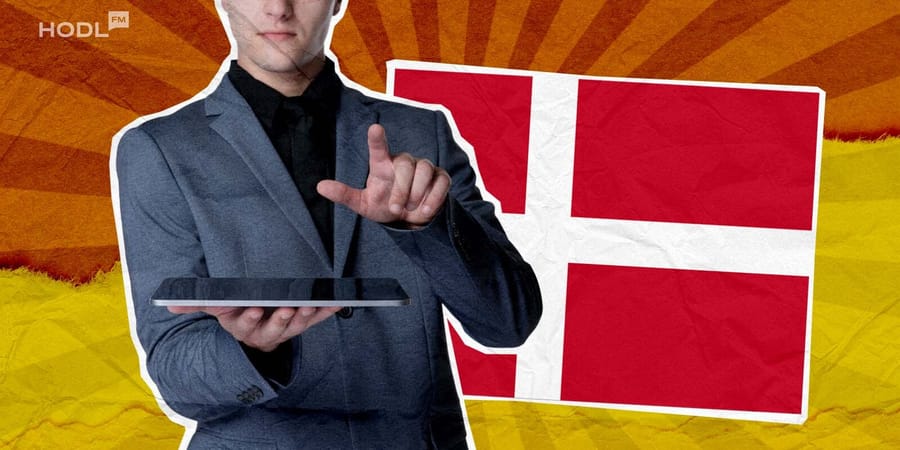Privacy advocates are welcoming Denmark’s decision to withdraw its proposal for mandatory message scanning on platforms such as Telegram, Signal, and WhatsApp.
Denmark, currently holding the European Council presidency, had suggested legislation that would require these messaging services to allow authorities to screen messages before they are encrypted and sent.
With Denmark’s withdrawal, the system will remain voluntary, leaving tech companies with the choice to implement message scanning.
Minister of Justice confirms withdrawal
The measure, known as Chat Control, was originally introduced in May 2022 as part of the EU’s efforts to curb the spread of illegal and illicit content online.
A revised version of Chat Control surfaced earlier this year, reigniting debate over the potential erosion of encrypted messaging and citizens’ right to privacy.
Peter Hummelgaard, Denmark’s Minister of Justice, confirmed the move, stating that Chat Control “will not be part of the EU presidency’s new compromise proposal, and that it will continue to be voluntary” for platforms, according to Danish daily Politiken on October 30.
Hummelgaard emphasized that the decision ensures more time for discussions, aiming to establish a framework acceptable to all EU member states.
Tech giants and privacy advocates applaud Denmark’s decision
Denmark’s withdrawal of the Chat Control proposal drew praise from major tech companies and civil liberties groups alike. X’s Global Government Affairs team described the move as a “major defeat for mass surveillance advocates” and stated that the platform will “continue to monitor the progress of these negotiations and oppose any efforts to implement government mass surveillance of users.”
Privacy Win in EU: Denmark Drops Mandatory Chat Control in CSAM Fight
— Global Government Affairs (@GlobalAffairs) October 31, 2025
Danish Justice Minister Peter Hummelgaard announced Thursday that the EU Council Presidency will abandon mandatory detection orders in the Child Sexual Abuse Material (CSAM) proposal—marking a major defeat for…
Patrick Hansen, director of EU Strategy and Policy at stablecoin issuer Circle, also welcomed the decision, calling it a “major win for digital freedoms in the EU.” The Electronic Frontier Foundation (EFF) echoed this sentiment, noting that public pressure likely influenced the EU Council to abandon its plan to scan encrypted messages.
EFF security and privacy activist Thorin Klosowski emphasized that lawmakers should stop attempting to bypass encryption under the guise of public safety. In a blog post, he wrote:
“As long as lawmakers continue to misunderstand the way encryption technology works, there is no way forward with message-scanning proposals, not in the EU or anywhere else. This sort of surveillance is not just an overreach; it’s an attack on fundamental human rights. The coming EU presidencies should abandon these attempts and work on finding a solution that protects people’s privacy and security.”
Looking ahead, Ireland will assume the EU Council presidency in July 2026, succeeding Denmark and taking responsibility for ongoing negotiations around digital privacy and security.
The debate over Chat Control has drawn attention beyond Europe, with prominent figures in the tech and crypto space voicing concerns. Ethereum co‑founder Vitalik Buterin criticized the proposal, arguing that mandatory message scanning would compromise the security of encrypted communications. Writing on X, he stated that “we all deserve privacy and security… for our private communications,” and warned that back‑doors required for scanning could create vulnerabilities exploitable by malicious actors.
Fight Chat Control.
— vitalik.eth (@VitalikButerin) September 27, 2025
You cannot make society secure by making people insecure.
We all deserve privacy and security, without inevitably hackable backdoors, for our private communications.
The fact that the government officials want to exempt themselves from their own law is… https://t.co/OY5NXyk58j
Buterin also meantioned a perceived inconsistency in the regulations, noting that while ordinary users could be forced to comply with scanning, government agencies might seek exemptions. He described this as a fairness and security issue, emphasizing that legislation should not weaken the integrity of encrypted systems.
Current framework and 2026 deadline
The existing voluntary framework governing message scanning is set to expire in April 2026. Hummelgaard noted that the prolonged political debate over Chat Control has left the EU without a clear legal mechanism to monitor illicit activity on encrypted messaging platforms.
The backtrack is reportedly intended to provide the EU with sufficient time to negotiate a new framework before the current rules lapse, balancing privacy protections with law enforcement needs.

Disclaimer: All materials on this site are for informational purposes only. None of the material should be interpreted as investment advice. Please note that despite the nature of much of the material created and hosted on this website, HODL FM is not a financial reference resource, and the opinions of authors and other contributors are their own and should not be taken as financial advice. If you require advice. HODL FM strongly recommends contacting a qualified industry professional.




